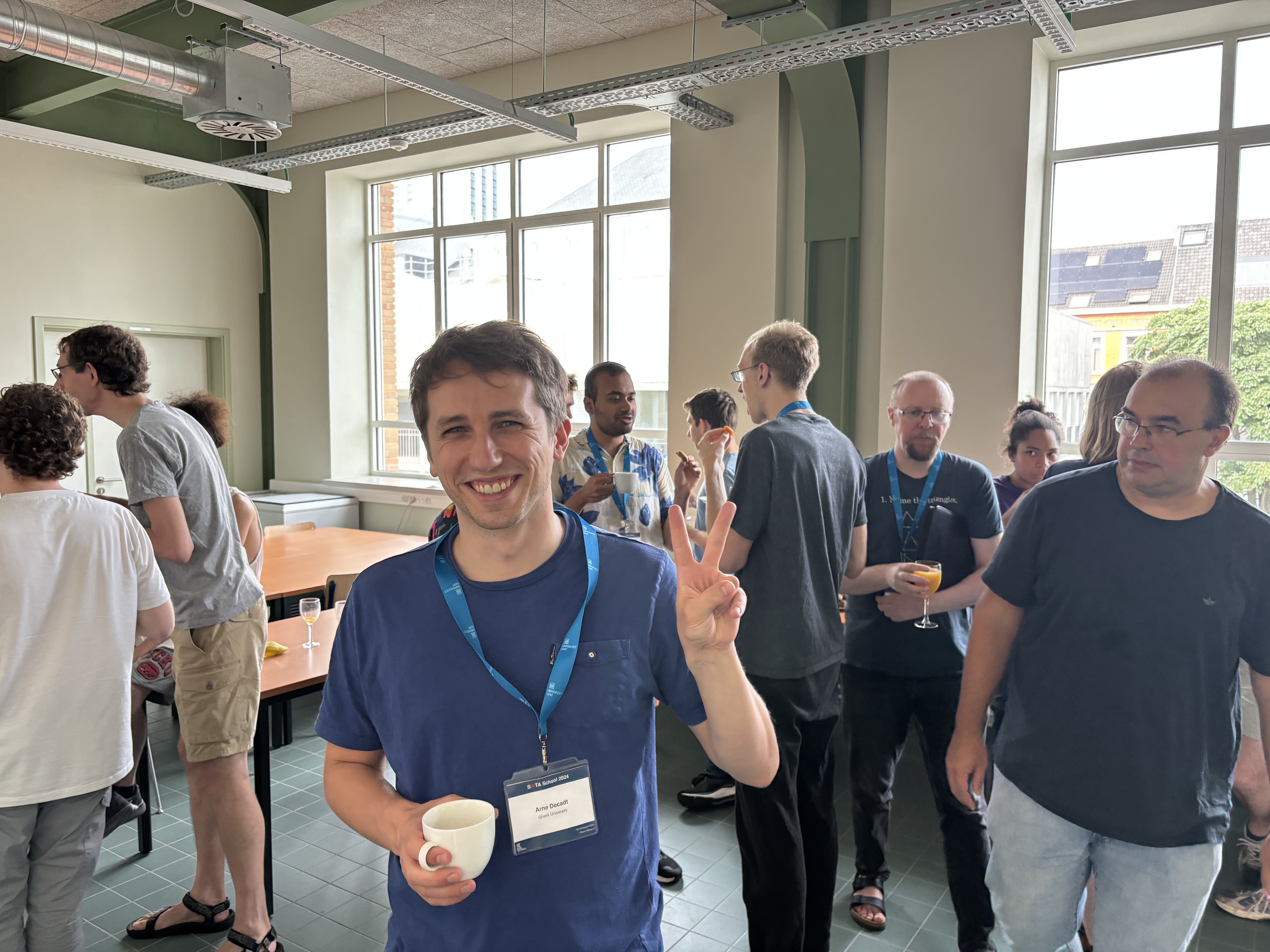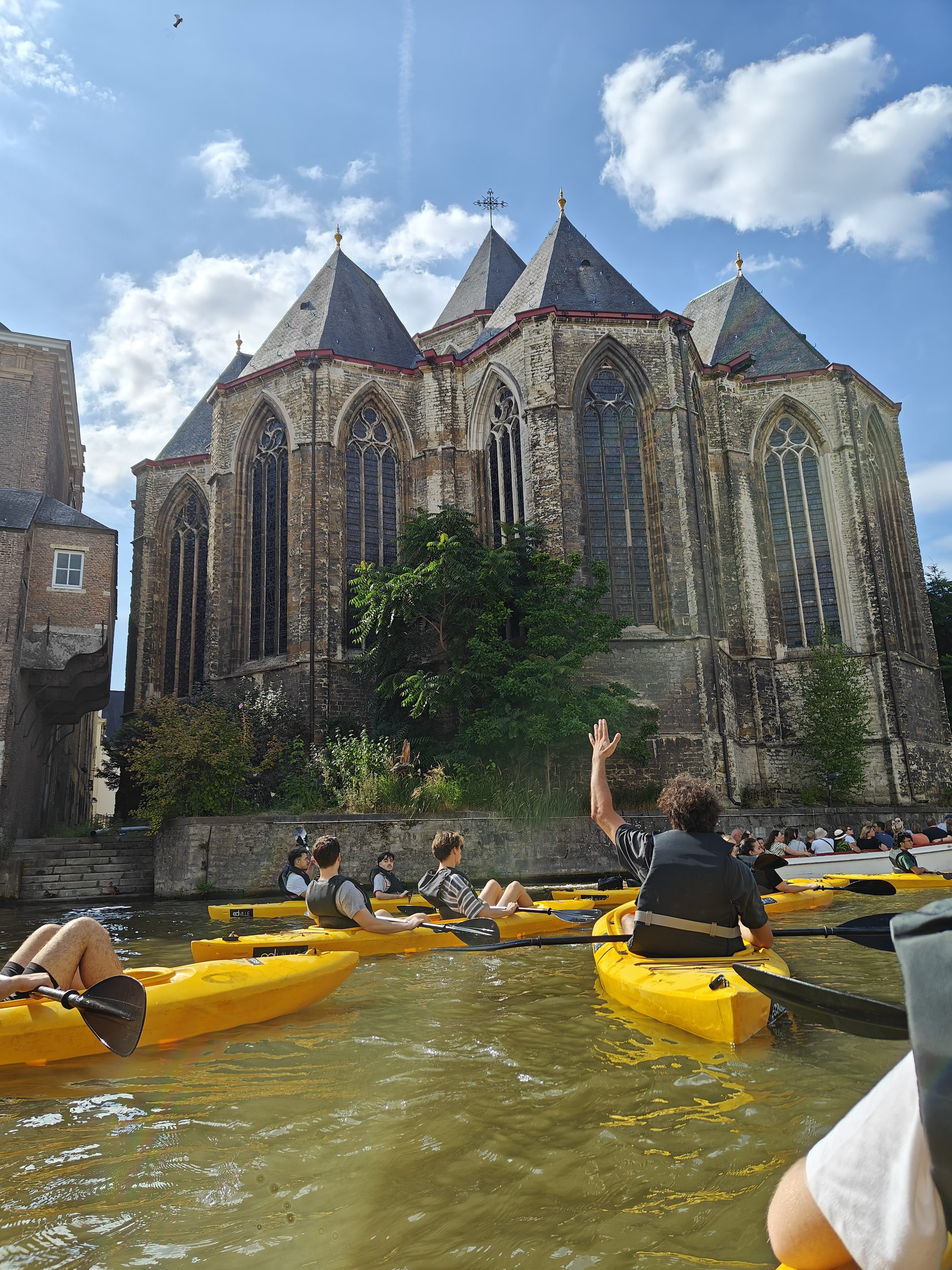SIPTA School 2024: A journey from IP in quantum to kayaking in the beautiful city of Ghent
Posted on August 22, 2024 by Adrián Detavernier[ go back to blog ]
The eleventh SIPTA School on Imprecise Probabilities took place from Monday 12 to Friday 16 August 2024 in the beautiful city of Ghent. The goal of this week was to bring interested researchers together and introduce them to the world of imprecise probabilities. The organisers, Alexander Erreygers and Floris Persiau, from the research group “Foundations Lab for imprecise probabilities” at Ghent University, did a wonderful job at achieving that goal. They succeeded at organising a school at which not only everything went by very smoothly, but they also succeeded in bringing a diverse group of people together from across the world (the Netherlands, Spain, US, UK, …). The presence of the wide variety of profiles - PhD students, master students, researchers from the private sector, experienced lecturers/professors - made the SIPTA school even more interesting.
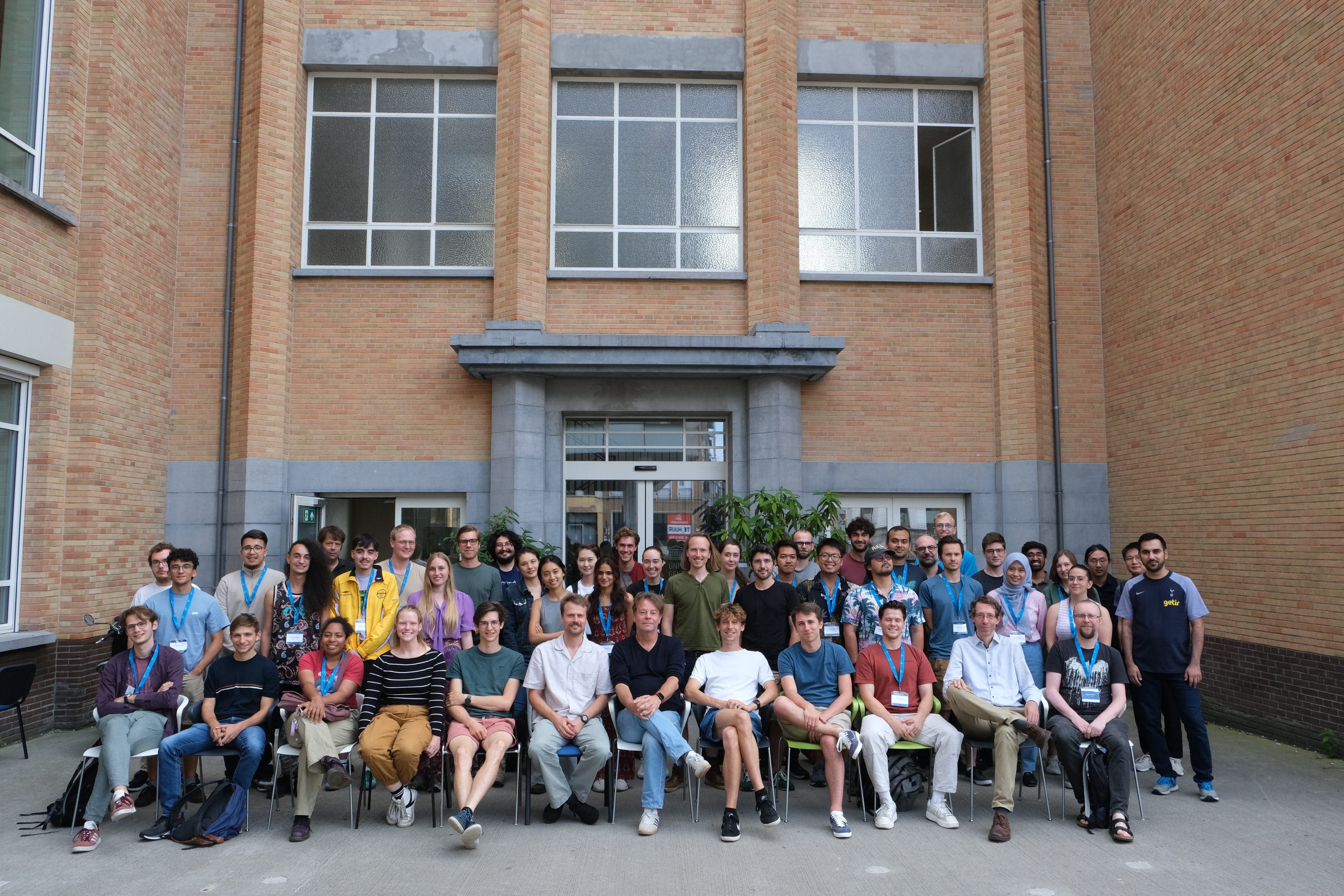
On Monday, the school was set in motion by some opening words of the organisers after which the first lecturer, Erik Quaeghebeur, filled the rest of the day with a general introduction to imprecise probabilities. He covered the main frameworks of imprecise probabilities to set a broad basis for the lectures of the following days. After this first day of theory, all participants were invited for a pizza night on the rooftop terrace of the Technicum building of Ghent University, located in the centre of Ghent. This was also the building where the classes took place. It was a nice opportunity to get to know the fellow students and the lecturers. The relaxed ambience really invited us to share some informal ideas with each other and it even almost led to a SIPTA school anthem, which luckily for some and sadly for others, was never finished.
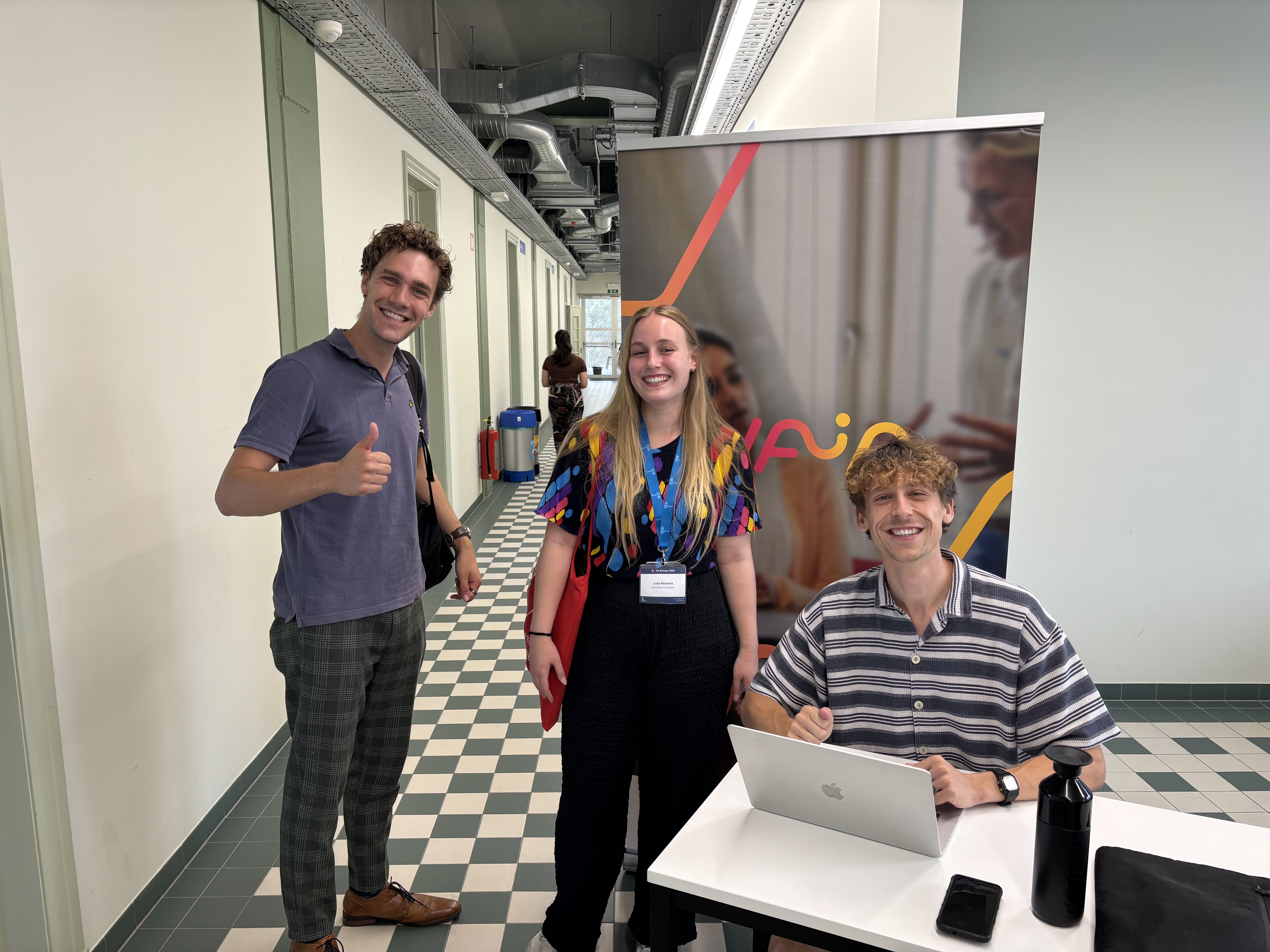
The second day started off with Matthias Troffaes who took some of our (in)decisiveness away by teaching us about decision theory. He made good use of Python notebooks to give us, the students, a nice hands-on experience. Troffaes was followed in the afternoon by Alessandro Facchini who introduced us to the logic of desirability and showed how logic and desirability are related.
Wednesday was the AI day of the school and was opened by Ilse De Vos from VAIA, one of the sponsors of this summer school.
She talked about VAIA: a collaboration between the universities and universities for applied sciences and arts in Flanders.
Their goal is to share their artificial intelligence knowledge and expertise with people from the academic to the business world.
One of their main ideas, or the one that stuck the most with me, is lifelong learning: by offering a wide range of courses and training (such as summer schools), they want to stimulate people to always keep learning, in their case, about AI.
The rest of the day we got to listen to Alessandro Antonucci, who shared his knowledge about and enthusiasm for causal inference and imprecise probability models with us.
After four hours of lectures, we finished the day early to explore the canals of Ghent by kayak.
It was a very unique way to visit the city centre.
Once again, a very enjoyable social activity filled with laughs and interesting fun facts — provided by yours truly — about the history of Ghent.
On Thursday Alexander Erreygers and Michael Kupper filled the morning lectures with imprecise-probabilistic processes. Erreygers’s part focussed on discrete-time Markov chains with finite state space. Kupper departed from mathematical finance and extended the setting to continuous time and also allowed infinite state spaces. In the afternoon, Gert de Cooman explained to us the basics of quantum theory and motivated the connection between quantum theory and imprecise probabilities. The lecturers of this day nicely mixed theory and exercises. Keeping our attention was, even on the last day of theory, by no means a challenge.
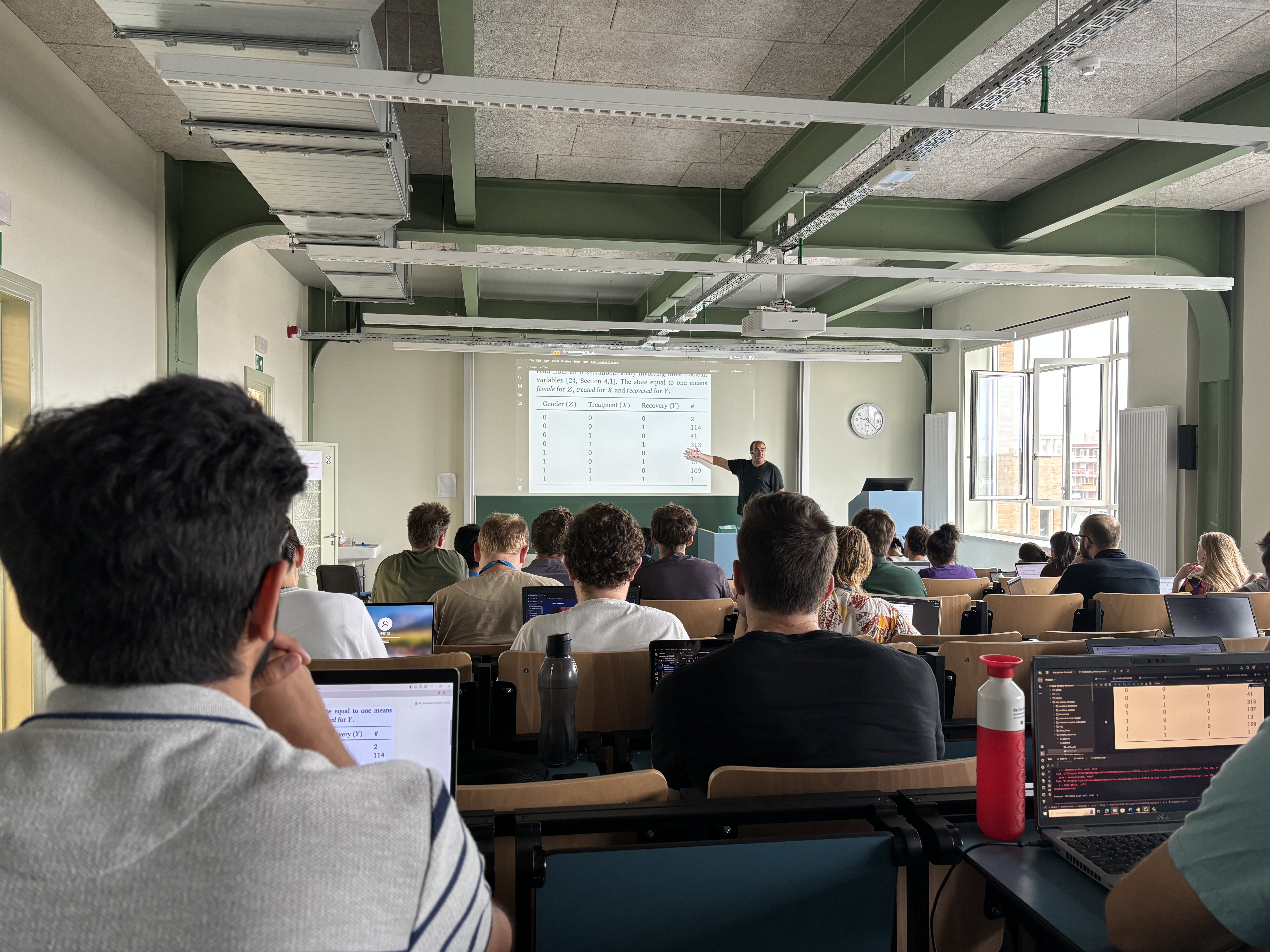
For the last day of the SIPTA school, every lecturer prepared a project for the students to work on in groups. All students could give their preferences for the projects and were divided in groups based on that. The project encouraged us to dive deeper into one of the topics of our choosing together with other participants. This was a very enriching experience, since it allowed us to work with people we otherwise wouldn’t. It is always fascinating to hear other ways of thinking about a topic you yourself have been thinking about for some time. The day ended with a Q&A with some of the lecturers and the SITPA president, Jasper De Bock. They took the time to answer all kinds of questions, questions about imprecise probabilities, but also about pursuing an academic career.
Overall, at least in my regard, the summer school was a great success. I really enjoyed the lectures and the project on Friday. They taught me some key insights into imprecise probabilities and also showed some applications and fields in which imprecise probabilities can be and are applied. Even more than the educational side of this week, I enjoyed the social side, for which I really want to highlight the good work of the organisers Floris and Alexander. The location for the lectures they chose, together with enough coffee breaks (with plenty of cookies, fruit, …), nice lunches, fun activities in the evening, etc., created a very relaxed atmosphere that made it easy to connect and share ideas with the other participants and lecturers. So, in conclusion, the eleventh SIPTA school on imprecise probabilities was a delightful and very enlightening experience.
